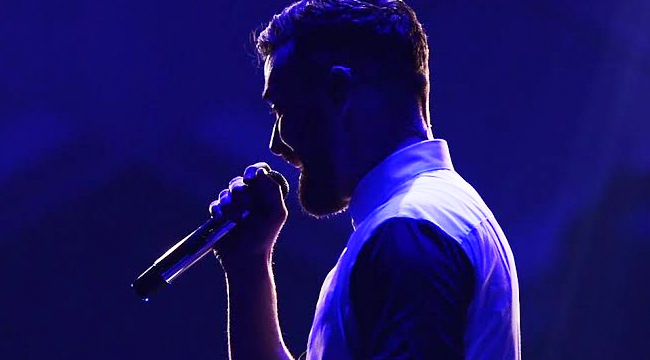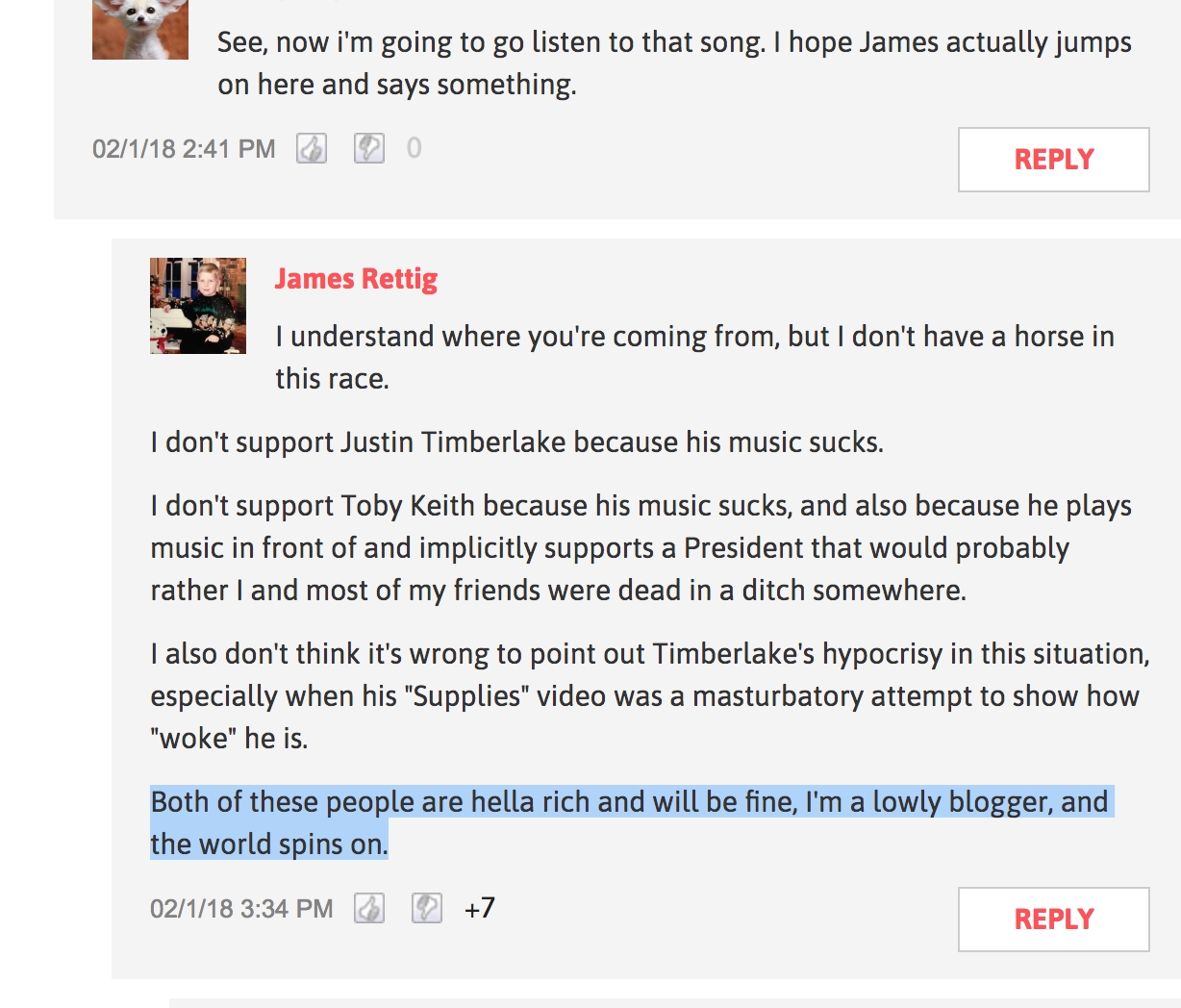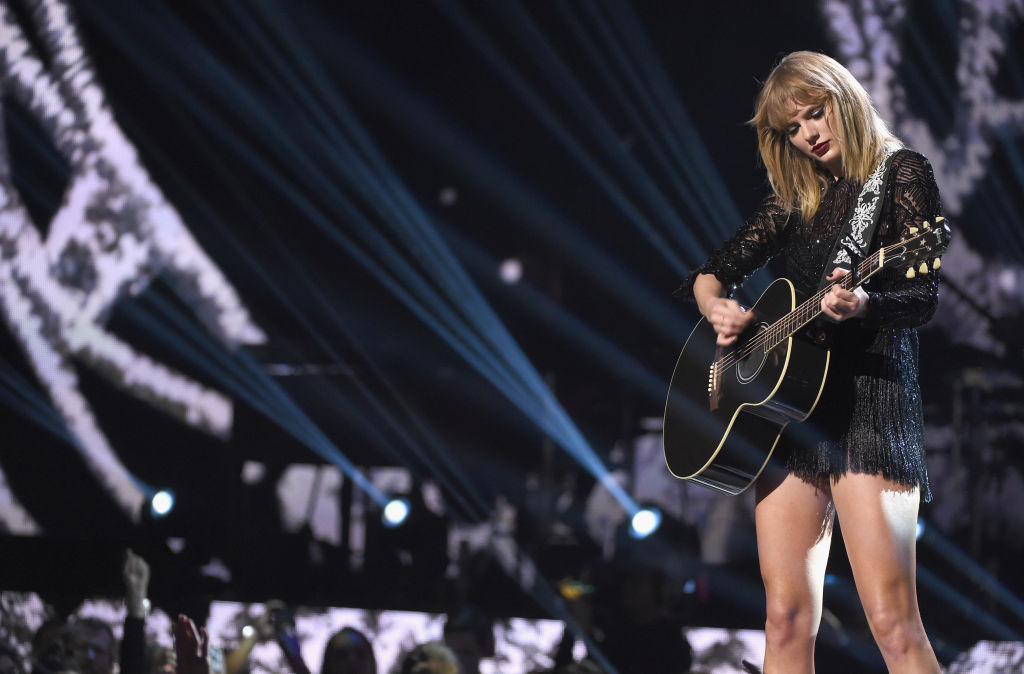
On Thursday, one day before Justin Timberlake was set to release his new, not-country album Man Of The Woods, Pitchfork ran a news story revealing that Toby Keith was credited as a songwriter on the album. The article admits that the information has already been revealed in a number of reviews, ranging from The Guardian to The Cleveland Plain Dealer, and that they didn’t know in what manner Keith was involved, aside from one of many writers on the song “Sauce.” But, through several paragraphs detailing Keith’s history of Republican and Trump dealings, the point of the article was very clear: Justin Timberlake worked with someone affiliated with Donald Trump, and this is a bad thing.
Obviously, there are many reasons Toby Keith could be a credited songwriter. Maybe he and Timberlake are buds who go shooting together in their Make America Great hats, or maybe Timberlake just accidentally lifted a melody and was legally forced to credit him. Maybe the song was the product of years of songwriting from various musicians and eventually handed to him by his label to finish off, or maybe Timberlake’s whole woke music video for “Supplies” is hypocrisy at its worst. When this news story was published, the answer to this wasn’t readily available, but it still led to a framing like this:
Toby Keith has performed for Trump twice in the past year. Now he's on Man of the Woods. https://t.co/Yk6lhRxAe4
— Pitchfork (@pitchfork) February 1, 2018
This is only one of many examples across the media landscape of a determination to take down Justin Timberlake. Maybe that’s a little too dramatic, but it’s hard to ignore that the writing has been on the wall for this album cycle that his schtick is not welcome in 2018. And, to be fair, in the eyes of many critics and journalists, it might be deserved. Though Timberlake was in good graces for most of his solo career, things changed sharply with the second 20/20 Experience release, and even further with his catchy-as-hell, cornball Trolls song. This isn’t a Pitchfork conspiracy or even a media conspiracy, but simply a reflection of a current cultural moment, where backlashes are predictable, safe spaces to unleash aggression borne out of a nightmarish political climate. In Stereogum’s coverage of the same story, the writer responsible for the post summed up the mindset that comes with possibly unfair mudslinging.

Those Stereogum comments, generally one of the most spirited and insightful comment sections on the internet, bring up a wealth of points, with many feeling like this Trump connection is a bit of a reach. Dig deep enough into any album and you’ll find someone had a hand in it that has opposing political views as you. It’s probably a stretch to say that supporting Timberlake is in some way supporting Trump, and even more so to believe that anyone can hit a thousand on their wokeness batting average. If you want to tear someone down, you can. It’s not hard. And if they are millionaires who appropriate black culture (while working with renowned black artists) and have starred in Woody Allen films (along with hundreds of other well-known and not widely criticized actors), all the better.
Sure, Timberlake hasn’t done much to help himself. His flannel-on-flannel getup, his backwoods tracklist, and his Bon Iver-meditation retreat press photos didn’t help the matter. Plus, there’s the fact that he’s playing the Super Bowl on Sunday, which immediately highlights maybe the biggest controversy in his past, when he exposed Janet Jackson’s breast in 2004 and didn’t receive his fair share of the blame. But none of that quite adds up to the ire he’s received, where even a stunning video for “Say Something” doesn’t manage to get any credit. For the last several months, Justin Timberlake has felt like the enemy, the latest in a line of pop artists to focus a collective American angst.
Over the past calendar year, there’s been a number of similar takedowns, where artists like Taylor Swift, Arcade Fire, and Katy Perry all wound up on the losing end of an angry internet. One thing that ties all these artists together is that they released career bad albums while still at the height of their popularity. So, it makes sense that people would love to see these mighty fall on their face. But when a culture is actively rooting for failure, and amplifying even the flimsiest of transgressions as if they were mortal sins, what does that say about the culture as a whole?

For Arcade Fire, it felt like destiny ever since they rolled out Reflektor with an over-wrought campaign, and it hurt more that they didn’t seem to learn from their mistakes on Everything Now. But the tone of the critiques felt highly personal and joyful, not the voices of fans that were disappointed by one of their favorites falling short, but of vipers waiting to strike at the first sign of weakness. For Katy Perry, it felt a long time coming for someone that could claim to be the most followed person on Twitter. Maybe what links her and Arcade Fire was a desire to make music for the masses that made big statements, and neither following through with that the surefootedness that’s required to do so. Perry’s “purposeful pop” branding seemed dead on arrival, and decisions like a Big Brother-esque live stream and an appearance with Migos on SNL that felt particularly exploitive wound up with Perry’s Witness stuck in both the commercial and critical mud.
For Taylor Swift, things got particularly bad for her as soon as Kim Kardashian and Kanye West released the audio of a phone call that Swift claimed to never exist. Suddenly, her cool squad that included Lorde and Haim just an album cycle previously were nowhere to be seen, and Swift’s reputation receiving a fate that was written before anyone had even heard a song. Swift is still so massive that every critic in the world couldn’t take her down if they tried, but issues like her political silence didn’t earn her any good graces, even if it does feel a little weird to demand political transparency from a musician. Under the Trump presidency, Swift is a villain for a different reason than Perry or Arcade Fire. She’s not ridiculed for saying too much. She’s hammered for not saying enough.

In the end, maybe this is all just an insular phenomenon, sucking the joy out of big pop event albums for those of us whose jobs it is to cover them. When national publications write takedowns of Justin Timberlake or Taylor Swift, they aren’t speaking to their actual core fans. They are writing to those on the fringe, the same ones they’d spent the previous years convincing to pay attention to pop, now alerting that it is time to move on to whatever is next. These million dollar musicians feel disposable in the hands of the media, and it becomes hard to distinguish if these albums are even as bad as we say they are. Years from now, will it be remembered that Arcade Fire had their biggest radio hit ever with the excellent single “Everything Now” or that Taylor Swift returned to the top of the country charts as a songwriter in 2017 with Little Big Town’s “Better Man?” Probably not, because history will be written by the internet.
Of course all of these artists deserve critiques for their lackluster music and, of course, they deserve it for half-baked marketing schemes. But all of these have felt like they stepped beyond that into territory that reads as vindictive. And, with so many truly terrible things being revealed on a daily basis regarding racism, sexism, harassment, and violence against women in the music industry, it’s not surprising that listeners are quick to not take anyone’s bullshit. But let’s play a little game. On Sunday, when Timberlake takes the field in Minnesota at halftime, check out Twitter and see if people are actually reacting to the performance, or if they are flinging out jokes they’ve been pre-writing all weekend. And with Timberlake’s album release promo just about ending, the real question is who will they come for next?






